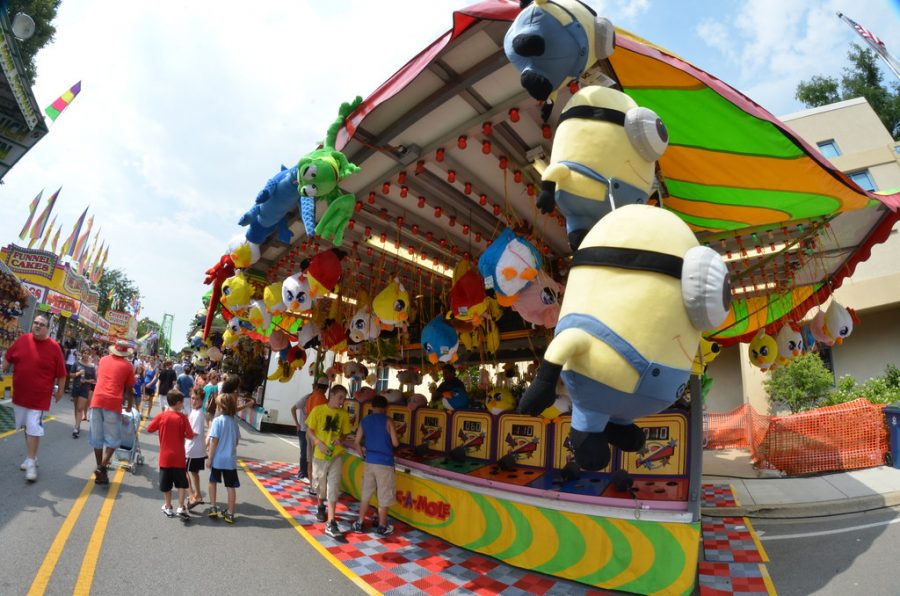Carnival games function as gambling for children
Being often difficult to win and producing insignificant prizes, carnival games essentially act as gambling for kids.
“The house always wins,” is a common phrase alluding to casinos. It means that if one were to win money at a casino, the want for more money would drive one to play again and again. This becomes a problem when the odds are stacked against casino-dwellers. These casinos rig their games while providing people with just enough hope that they could gain a profit. Glancing at carnival games, one could realize it is essentially the same thing. People pay to play a game where the odds are against them, and the ‘house’ will profit. The main difference between carnival games and casino games is the fact that kids can legally participate in carnival games. If kids should be allowed to play these games for money, the games should be made fair.
The rewards one may earn from a carnival game usually end up being small stuffed animals or cheap toys. These carnival games are rigged to make sure people have a small chance of winning, enough so that kids will keep paying and paying to win a small prize. This is essentially exploiting children for money.
Not all the prizes are small and cheap though. There are huge plushies or cool light up toys, but typically to get these prizes, more money is needed to be spent than would be required to simply purchase one. Some games even require people to play multiple times without losing to win a large prize. These kids are drawn in and convinced to play games over and over for a large prize, just like casinos.
This brings up the second point. Should these carnival games really be allowed to exploit these children? Research shows that adults addicted to gambling often developed the habit as kids.
“I think carnival games can be considered as gambling for kids in a way by that feeling of getting a prize this time, or next time will be the one. It’s taking the risk over and over again, which is gambling,” junior Mason Geibel said.
In a study done by the National Center for Biotechnology Information (NCBI), it is stated that 69 percent of adults addicted to gambling started gambling before the age of twelve. With teenagers being young adults, it can be inferred that these carnival games fuel future gambling addiction. The study also stated that most adult gamblers reported ages thirteen to eighteen was when they developed a relationship with gambling. With this being such a vulnerable age to developing addiction, it is important to make sure that these carnival games will not fuel an addiction.
Although most people believe carnival games are innocent, fun games with a chance to win a prize, there is a question of morality around the risk to even have one child grow up with gambling. These games should not be rigged against children and should not rely on a slight chance to win a small prize. These kids may relentlessly spend their money to get the toy they want, so it has to be realized that these kids aren’t to be exploited.



